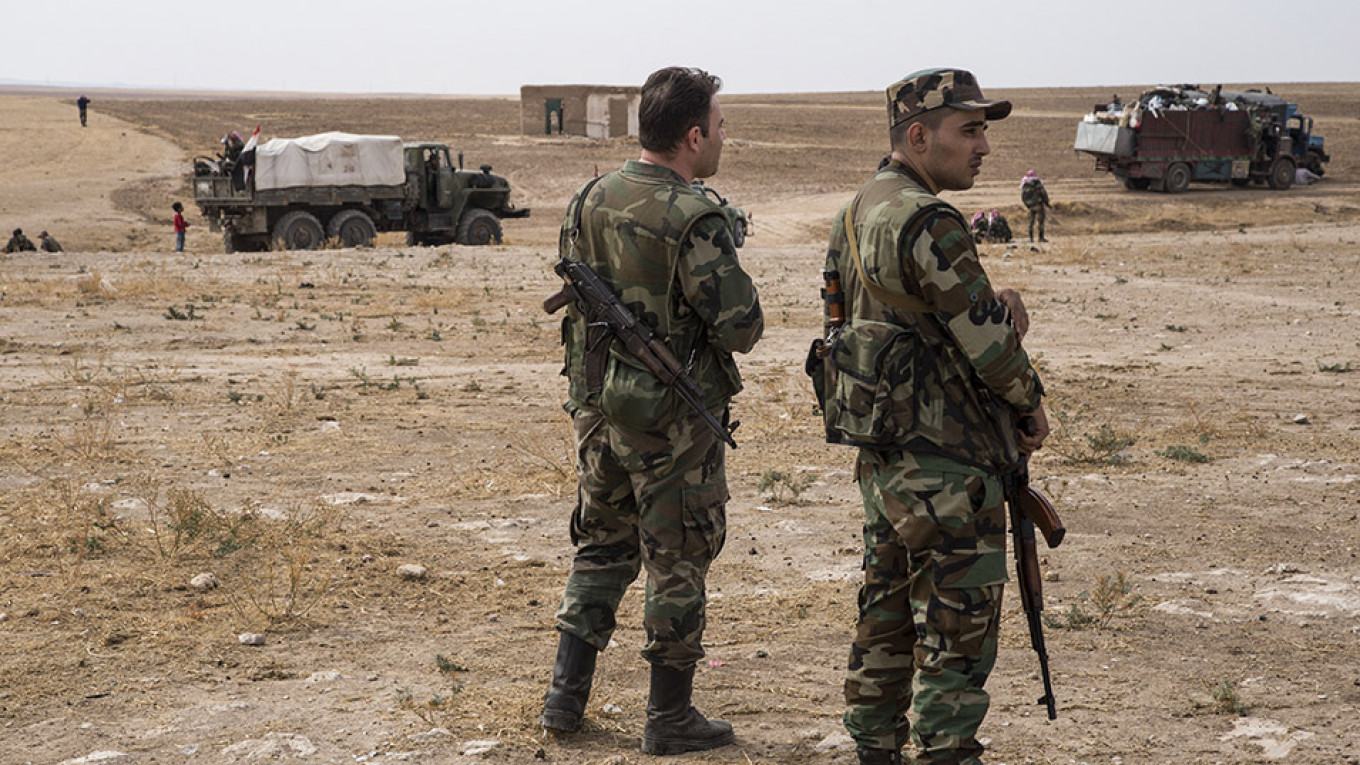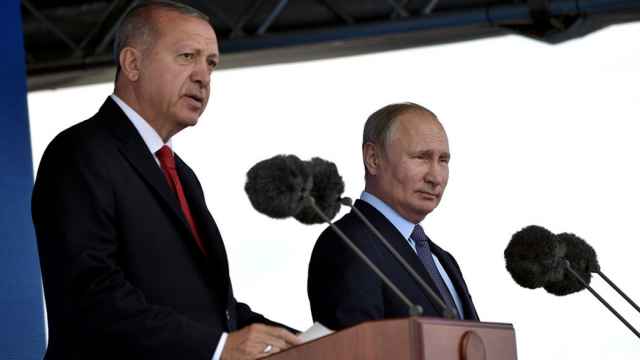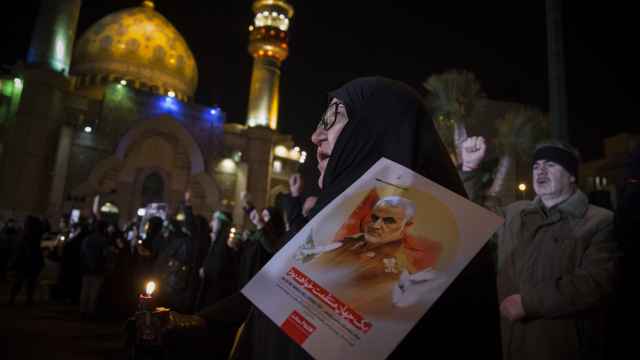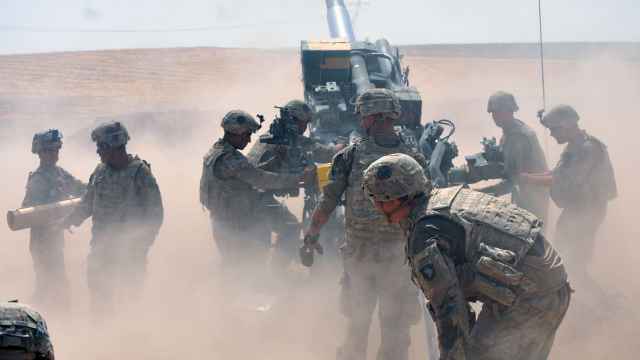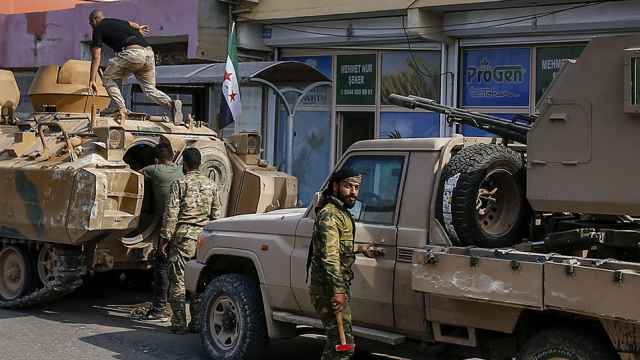U.S. forces intercepted an unidentified Russian major general in northern Syria during deconfliction operations, the U.S. State Department’s special envoy for Syrian engagement and the anti-Islamic State coalition said Thursday.
James Jeffrey’s remarks follow news of U.S. troops “blocking” a Russian military patrol from accessing an oilfield in northeastern Syria’s province of Hasakah on Saturday. The envoy’s revelations also come two years after U.S. airstrikes killed between five and 200 Russian mercenaries attempting to take over an oil refinery in eastern Syria’s Deir Ezzor region.
Russia and the U.S. experienced “hiccups” in their military deconfliction efforts in Syria, including around 14 months ago when Russia moved toward the northern town of Manbij, Jeffrey said Thursday.
“At one point, we intercepted a Russian major general who was driving towards the town of Manbij,” the U.S. special envoy said in a televised briefing.
The interception “was all dealt with in these military-to-military channels,” he told reporters.
Jeffrey did not identify the senior Russian major general.
Jeffrey also described “mini-encounters” with Russian troops leading to “minor dustups” in another northeastern city of Qamishli.
He said they all get worked out at military channels, “...sometimes at the colonel level, sometimes at the one-star level, sometimes at the three-star level, but at the military level.”.
Russia’s Defense Ministry has not yet commented on Jeffrey’s remarks.
Russia has waged an air and sea campaign in support of Syrian President Bashar al-Assad since 2015 as Moscow's Middle East ally grapples with a years-long civil war. The U.S.-led coalition deployed in the war-torn country in 2014.
As of mid-December, U.S. forces were deployed at 11 bases and military posts in northeast Syria, including five in Hasakah, four in Deir Ezzor and two in Raqqa, Turkey’s Anadolu news agency reported last month. U.S. forces withdrew from Kurdish-held regions but stayed in oil-rich Deir Ezzor and Hasakah after Turkey waged its military campaign in northeast Syria, Anadolu reported in November.
A Message from The Moscow Times:
Dear readers,
We are facing unprecedented challenges. Russia's Prosecutor General's Office has designated The Moscow Times as an "undesirable" organization, criminalizing our work and putting our staff at risk of prosecution. This follows our earlier unjust labeling as a "foreign agent."
These actions are direct attempts to silence independent journalism in Russia. The authorities claim our work "discredits the decisions of the Russian leadership." We see things differently: we strive to provide accurate, unbiased reporting on Russia.
We, the journalists of The Moscow Times, refuse to be silenced. But to continue our work, we need your help.
Your support, no matter how small, makes a world of difference. If you can, please support us monthly starting from just $2. It's quick to set up, and every contribution makes a significant impact.
By supporting The Moscow Times, you're defending open, independent journalism in the face of repression. Thank you for standing with us.
Remind me later.


